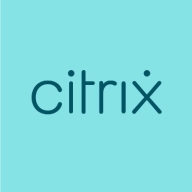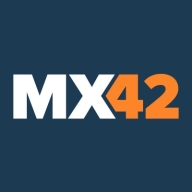


Citrix Endpoint Management and Matrix42 Unified Endpoint Management are competing products in the enterprise mobility management space. Citrix often seems favorable with its customer service and pricing, whereas Matrix42 stands out due to its comprehensive features that justify its cost.
Features: Citrix Endpoint Management offers robust security, extensive support for mobile devices, and secure access to corporate applications. Matrix42 Unified Endpoint Management provides an integrated solution for managing multiple device types, seamless integration across IT environments, and advanced features catering to diverse enterprise needs.
Ease of Deployment and Customer Service: Citrix Endpoint Management is known for straightforward deployment and efficient customer service, facilitating smooth setup. In contrast, Matrix42 Unified Endpoint Management offers extensive support to accommodate varied enterprise setups, despite its more complex deployment.
Pricing and ROI: Citrix Endpoint Management generally presents lower setup costs, appealing to budget-conscious enterprises. Matrix42 Unified Endpoint Management, although with higher upfront costs, is perceived to deliver significant ROI through its extensive capabilities and long-term value. Despite higher initial costs, Matrix42's ROI is often seen as justifying the investment due to enhanced scalability and support.
| Product | Market Share (%) |
|---|---|
| Microsoft Intune | 26.7% |
| Citrix Endpoint Management | 1.9% |
| Matrix42 Unified Endpoint Management | 1.8% |
| Other | 69.6% |



| Company Size | Count |
|---|---|
| Small Business | 121 |
| Midsize Enterprise | 47 |
| Large Enterprise | 158 |
| Company Size | Count |
|---|---|
| Small Business | 6 |
| Midsize Enterprise | 3 |
| Large Enterprise | 5 |
Microsoft Intune provides centralized management of mobile devices and applications, ensuring security, compliance, and productivity through integration with Microsoft services like Microsoft 365 and Azure Active Directory.
Organizations use Intune for managing mobile devices and applications, enhancing security and compliance across platforms. With features like single sign-on, conditional access, and zero-touch deployment via Autopilot, it facilitates efficient operations. Intune's scalability, easy enrollment, and capabilities such as remote wipe support diverse device management, offering robust data protection and efficient operation. Despite its features, improvement areas include reporting, compatibility with non-Microsoft devices, and better support for macOS and Linux devices.
What are the key features of Microsoft Intune?
What benefits should users look for in reviews?
In industries such as finance, healthcare, and education, Microsoft Intune is implemented to ensure secure and compliant device management. Companies leverage its capabilities to deploy security policies and manage both corporate-owned and BYOD environments, facilitating a unified approach to data protection and compliance.
XenMobile is a comprehensive solution to manage mobile apps, data and devices, available both on-premises and in the cloud. Users have single-click access to all of their apps from a unified corporate app store and IT can easily configure, secure and support mobile devices. With XenMobile technology, IT can meet their compliance and control needs while giving users the freedom to experience work and life their way.
Silverback offers easy, scalable and secure device management for tablets and smartphones, including Android for Work, Windows 10 Mobile, iOS, and Mac OS.
We monitor all Unified Endpoint Management (UEM) reviews to prevent fraudulent reviews and keep review quality high. We do not post reviews by company employees or direct competitors. We validate each review for authenticity via cross-reference with LinkedIn, and personal follow-up with the reviewer when necessary.